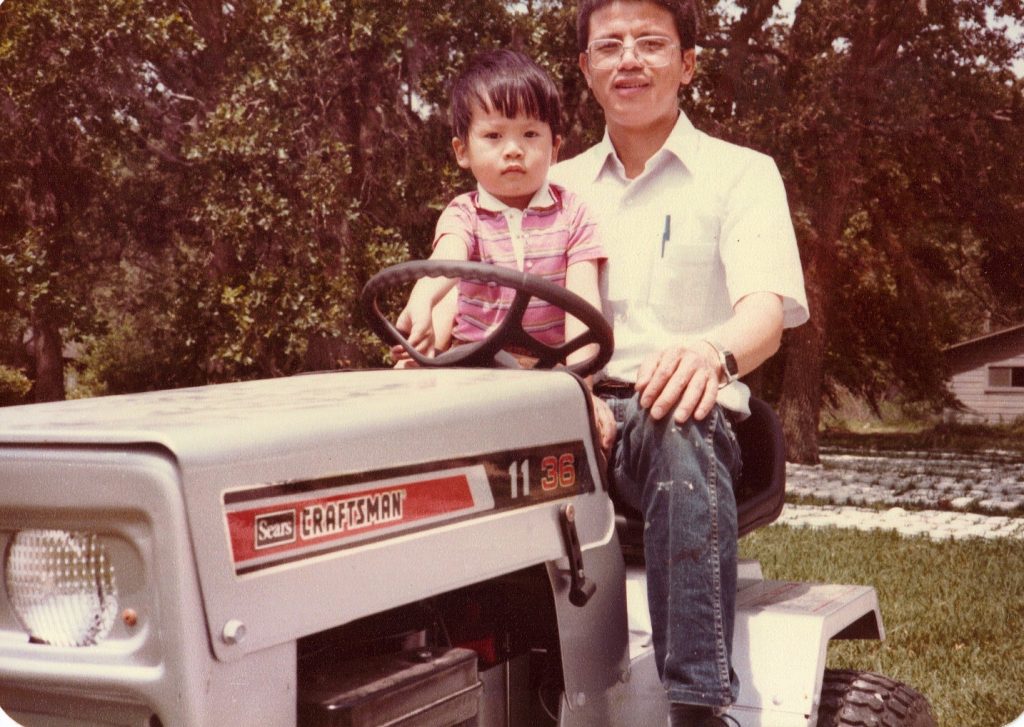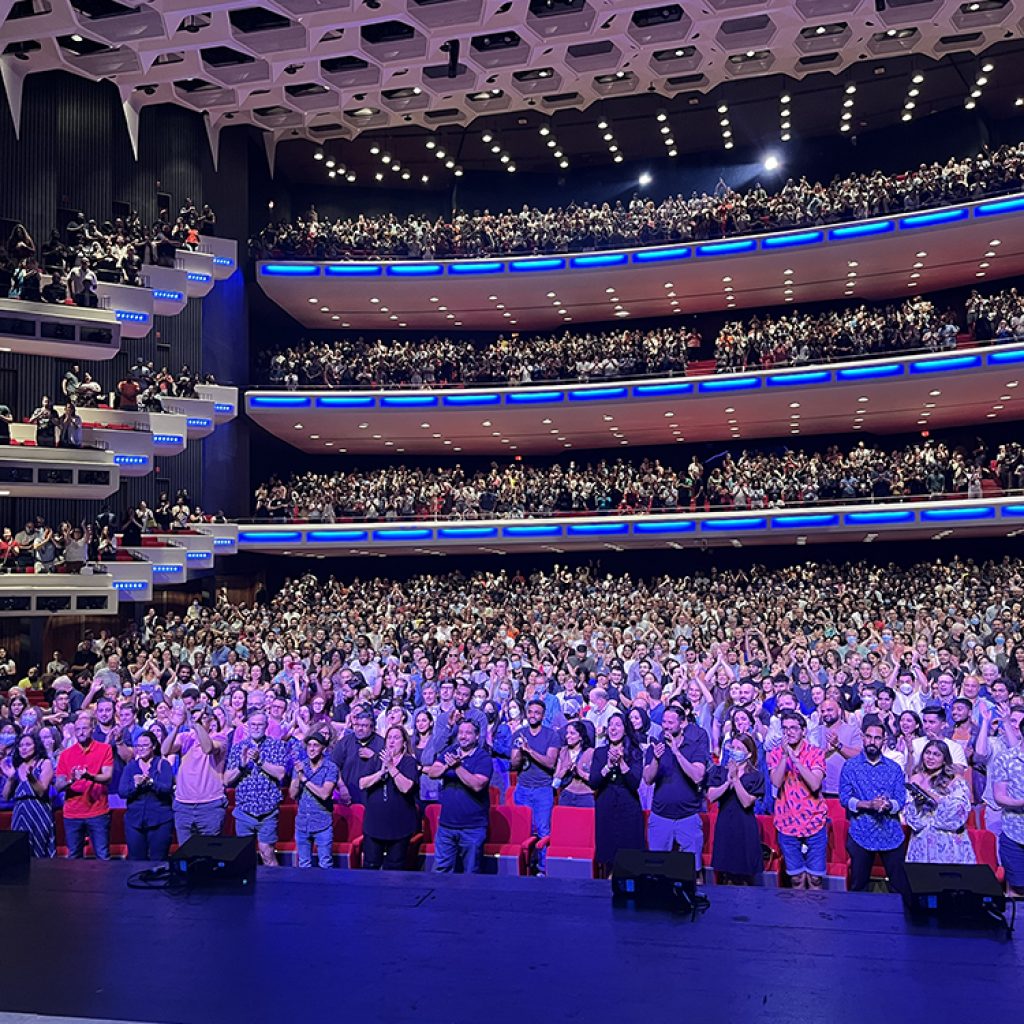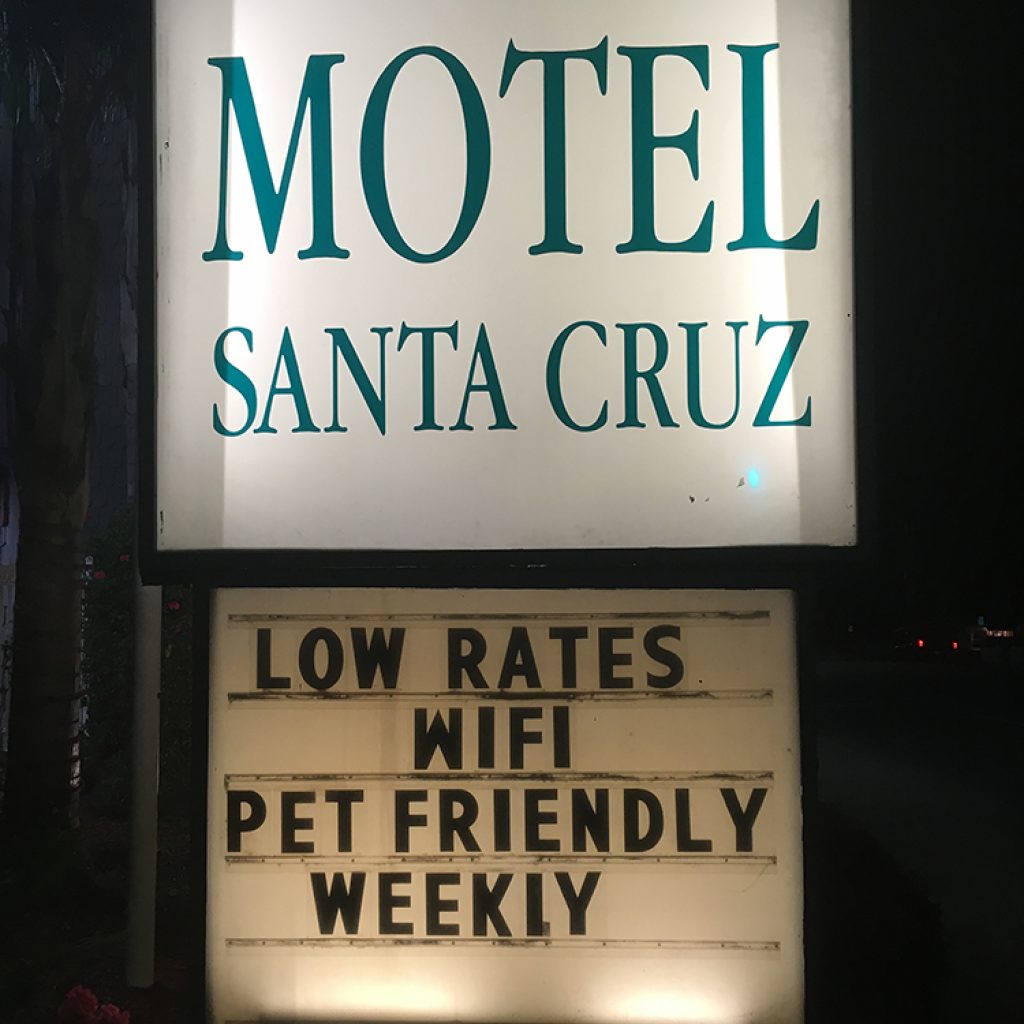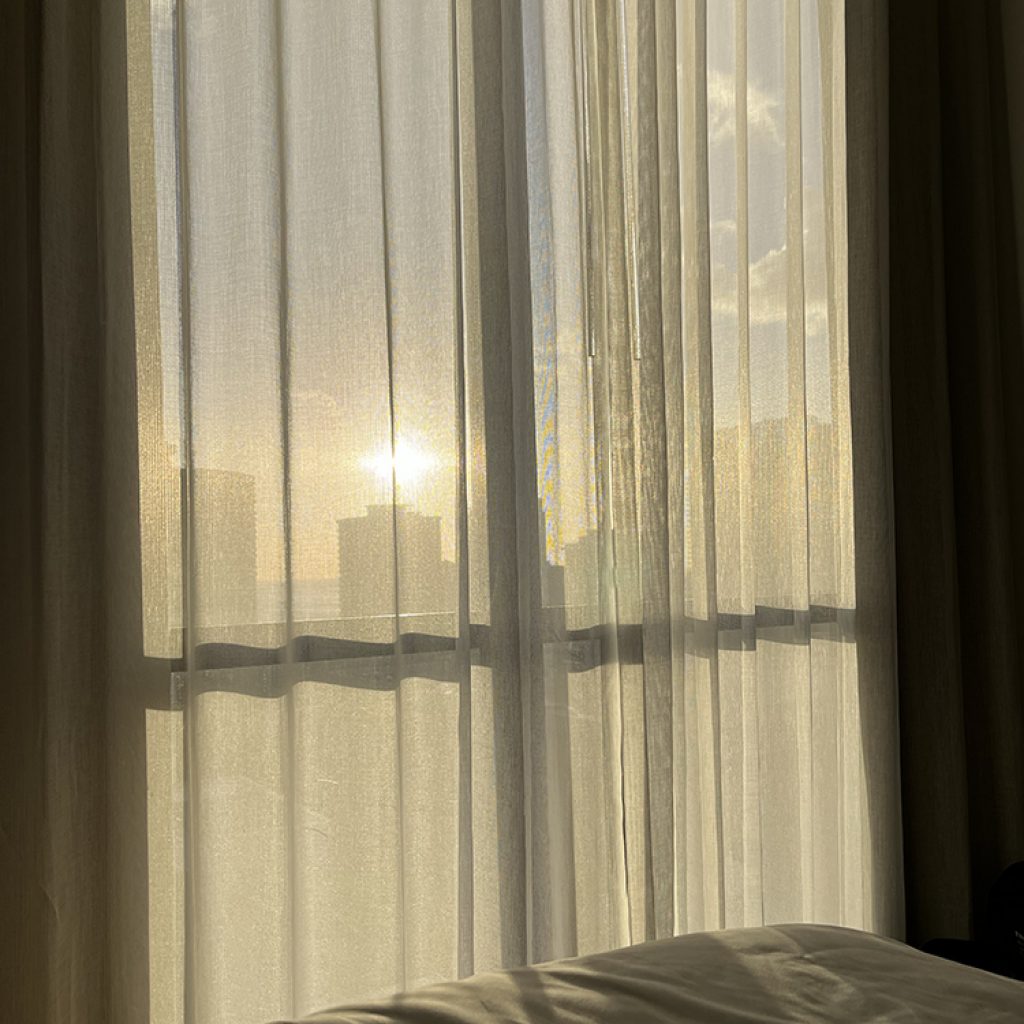
EUGENE KAN: When you were growing up, were there any early hints that you might end up as a comedian?
SHENG WANG: Not really. Growing up, I just wasn’t exposed to a lot of stuff. I didn’t have a lot of guidance in terms of a cool older brother or cousin to really show me the way. As a kid, I consumed very little comedy, and I never watched sitcoms. I think a lot of people have misconceptions about what they expect from a comedian’s background. When I watched Saturday Night Live , I was mostly waiting for the bands to come on. I was more into the music aspect of pop culture. James Iha playing guitar for The Smashing Pumpkins was a cool thing.
He was one of the few Asian faces you would see in something I thought was cool. Without any sort of comedic interest or experience, what was that catalyst or transitional moment for you to pursue comedy? I had glimpses of what it was like to be on stage. Even though that was not something I pursued for most of my younger life, I found myself on stage, whether it was a piano recital or making a speech for a club to make your resume look good for college. So I was mostly forced into those situations. But when I found myself there, there was always some moment where something clicked. I felt a connection with having an audience in front of you and holding that space and attention.
In college, I ended up getting a degree in business, but I was trying to spread my coursework around all kinds of stuff, including a couple of things that I was drawn to. I joined a group that was promoting Asian Americans to perform on stage, and I took poetry classes and photography classes. Suddenly, I could understand and appreciate those three avenues — comedy, photography, and poetry — where I couldn’t before, and that was when I started feeling like these connected me enough that it was worth exploring or trying to pursue.
Since you came up kind of late in the game, did you ever wish you had started earlier as a comedian?
When I was younger, I wish I was a little bit more curious in terms of finding more things to learn from. I wish I was a more voracious reader. As far as being a comedian, I don’t really have those feelings of “I wish I started earlier.” I mean, I wish I had a little bit more of the cultural vocabulary, all the stuff that people reference like Seinfeld and Friends . I don’t have any of that. But maybe that’s good for me, actually. I don’t know for sure. I do feel there are some people that start like that. They get inspired by some comedian that they love and they want to pursue it starting from a young age. I think that sometimes that can be a mistake because they haven’t got enough of a developed identity or understanding or who they are to let that come into the craft. I mean, I’m still trying to figure it out myself. When they start really young, there’s sometimes a danger of just becoming “comedy.” The general concept of comedy is your identity.


You’ve talked in the past about obvious Asian tropes in entertainment and you’ve been pushing against that. You’ve been doing comedy for two decades now, how have things changed for Asian American comedians? Do you think you can be yourself or is there still an element of pandering to the audience?
I guess things are a little bit different now, but in terms of how an audience reacts, I don’t know if I necessarily feel like it’s that different. From what I’ve seen, unfortunately, I still feel like younger comics are pandering to an audience and playing into those Asian tropes. It’s kind of saddening to see that that still happens.
When I first started out, the very first time I did stand- up comedy was at this talent show in college. I was basically just doing a caricature of what I thought Chris Rock was doing. I don’t think I even saw his special. I just saw parts of it. What changed comedy for me was being introduced to a comedian named Mitch Hedberg. Of the very little comedy I had seen, Mitch’s was totally different. That gave me the sense that I could do comedy in a different way and I could try to pursue it with the ideas and thoughts that I was already having.
Ultimately, I think comedy for me is self-examination and trying to be honest. What resonates the most with audiences almost always comes back to what your feelings are. If you can tap into how you really feel, what’s on your mind, what’s important to you and lean into that, that’s what’s going to be the most original and almost always what hits the hardest. You have to know yourself to be yourself.
What increased your confidence as you pursued comedy?
I think what gave me the confidence was doing it. It was just trying it out. I was trying to do photography and poetry as well at the time. With stand-up comedy, you can kind of “feel it” because it’s a performative thing. The confidence comes from creating something that resonates. If you come up with an original thought and it hits home, it gives you the sense that you’re worthy, your thoughts and ideas are worthy.
When you come up with a new joke, that feels amazing. And then when you continue to hone and sharpen it and make it into this powerful thing, it’s self-affirming. The confidence comes from being in that moment and having that laugh, hitting that punchline and getting that wave of laughter. Sometimes it puts you in this zone where you just feel like you’re in the pocket and you’re safe and you can be free and you can be whatever you are. You can’t do any wrong. It happens on occasion when you do certain shows, you find yourself in magical moments.
Comedy’s unique in that there’s laughter. It’s a very binary reaction and it’s a clear reaction. With other pursuits like poetry or photography, you have to trust yourself and then you might get someone to tell you, “This is good.” You have to have someone encourage you and give you affirmation outside of your own belief in it. But the feedback with stand-up is so unique and powerful.
“ I felt there was a sense of them being unable to grasp the reality that there’s an Asian guy on stage taking up space.”
This might seem like a random question. Early in your career, you had short hair and were clean shaven, a decidedly different look from how you look today with long hair and facial hair. I’m curious if there’s been a different reaction to your persona based on audience conceptions?
This was not a planned thing. It happened during COVID. For most of my career before this, I had deliberately wanted to look nondescript. I was trying not to give the audience anything to start judging me on when I got on stage before I said my piece. I wanted them to have as little to work on as possible. Sometimes that basically meant that they thought the performer looked like their coworker or just some Asian guy in their life. I kind of liked that, to be honest.
I was thinking about representation. It’s kind of offensive when people say, “You look just like this [Asian] guy from whatever,” I’m like, “Okay, I probably don’t, but whatever.” So I was thinking, if I do a good job and it’s a good show, and they see an Asian person that they think looks like this other Asian person, they might treat them as a whole person; they might think there’s more to the appearance. That might be a good thing in terms of how they see other Asians or the other guy in their department. I liked that idea.
So when I got this hair, I was a little worried. I kind of had the sense it might actually fit better as far as the style of my comedy, my vibe, my personality, what I talk about — it all matches up. It bothered me that part of my approach at the beginning was not to be corny, hacky, or reliant on props, and I didn’t want the hair to become a prop.
Everything you said there is fascinating. Like most comedians probably don’t even need to think about their appearance on a subconscious level like this. What were your experiences as an Asian American comedian working the circuit?
I felt like for a long time things have been at the most basic level of recognizing an Asian person as a whole human being. I don’t know if it’s necessarily still the case, but I experienced this a lot when I was working in New York. It might have been the crowds there and it was a more touristy area that I was working at a certain point in my career. I felt there was a sense of them being unable to grasp the reality that there’s an Asian guy on stage taking up space and they’re still processing that. I’m hitting them with jokes that are just all bangers and they can’t follow. I don’t know if I’m still working through the trauma of that or if I’m still holding it.

How did your upbringing or your parents help prepare you for some of these challenges?
Immigrants are like weird superhero stories. It gives you a certain power and awareness, as well as compassion and empathy for others. All that helps in terms of understanding the reality of life.
I’m just so grateful for my parents. They’re the freaking best. They’re just loving people, so they were always supportive of whatever I wanted to do. They weren’t pushy really, in one way or another. I mean, I had to take piano lessons. I had to go to Chinese school, but outside of that, I was pretty free. They’ve always refrained from pushing me too hard, especially when it comes to my career. My dad doesn’t want anything to interfere or influence me one way or another, almost to an extreme. I guess my dad never wanted to be responsible for any regrets I might have.
If someone wants to pursue their passion in comedy but doesn’t have support, what should they do?
Start by finding a community and making it a regular part of your life. For comedy, that’s an open mic or the comedy scene. In a big city like New York or LA, there are so many smaller scenes and so you navigate that and you find your folks. You find people that’ll give you a ride to the open mic. And then you have a meal with them afterwards and kind of debrief what happened earlier, and this becomes the work. This becomes the daily clock- in and-clock out. You go home, you sleep, you wake up, you listen to last night’s set, you notice the weak points, the strong points. You write and then you meet up with your friends, you ride together for the open mic. You show what you worked on and get your reaction, you record that and debrief with your friends afterwards. You find a community and then you do it everyday. That’s how you make that passion into something. It grows the passion cause you’re with your homies, and you guys are all figuring it out together.


What type of advice would you give to a younger version of yourself?
Consume the greats in the field you’re trying to pursue. See what the leaders of that field do and try to understand how they do it. That also gives you a sense of whether or not this is really what you want to do. And you can also watch the people who aren’t the best in that field, but make a living. There’s a lot of mediocre comedians making a living. I took some safety in knowing that I could still make a living even if I’m not the best. You don’t have to worry about paying rent. This is weird, I don’t know if it’s inspirational, but it’s real.
That’s pretty jokes. I guess it takes the pressure off a bit?
That was part of the equation for me. When I was starting out, every week I’d go to my home club and see the new comedian that’s touring in town. So every week there’s a new comic that’s touring, and a lot of times I’d watch ‘em and find they’re not my favorite comedian for some reason. But they do ok. It gave me a sense of, “If they can do it, I probably could do it too. I can eventually do this better than they can in my own way.”
Did you feel that you needed to be “funnier” to make it because you were Asian American?
I think so, I definitely feel there’s a different feeling to being an Asian face on stage, compared to being white. But I also just wanted to be funnier because I wanted to be my best. It was a personal drive to have the set of the night.
Have you found that it’s becoming easier for niche comics to build their own followings? And do you see that as beneficial to aspiring Asian American comedians?
Yes. With social media — we’re in the era of clips and reels — all kinds of people are blowing up. Way more than what a Netflix special alone can do. We’re in an age where with technology and algorithms you can be as obscure or niche as you want to be and still build a pretty good following and probably make a living. You can just put it out there and anybody can see it. So as far as being seen, I don’t think that’s really an issue anymore. In terms of accelerating the growth of opportunities for Asian American comedians, it’s just a matter of getting more voices, writers and performers, from different places and generations, from across the country.
What did you think it’d be like to be a professional comedian and what has been the reality?
In a weird way, I’m kind of where I thought I would be. When you first start out, your goals are low. They’ve got to be attainable within a certain timeframe. But then it keeps moving after you get there. I just felt like I’m not going to be “America’s best comedian”. The notion of that is weird and really not that helpful. But I had this idea that I’m just going to be the best I can. So for me, in terms of success, it’s never been about being famous or getting super rich or having a lot of material stuff. It was always about being the best that I can be and being the best version of the comedian that I am. I’m still on this path of continuing to grow. I live simply and I’m content with that. ▲
